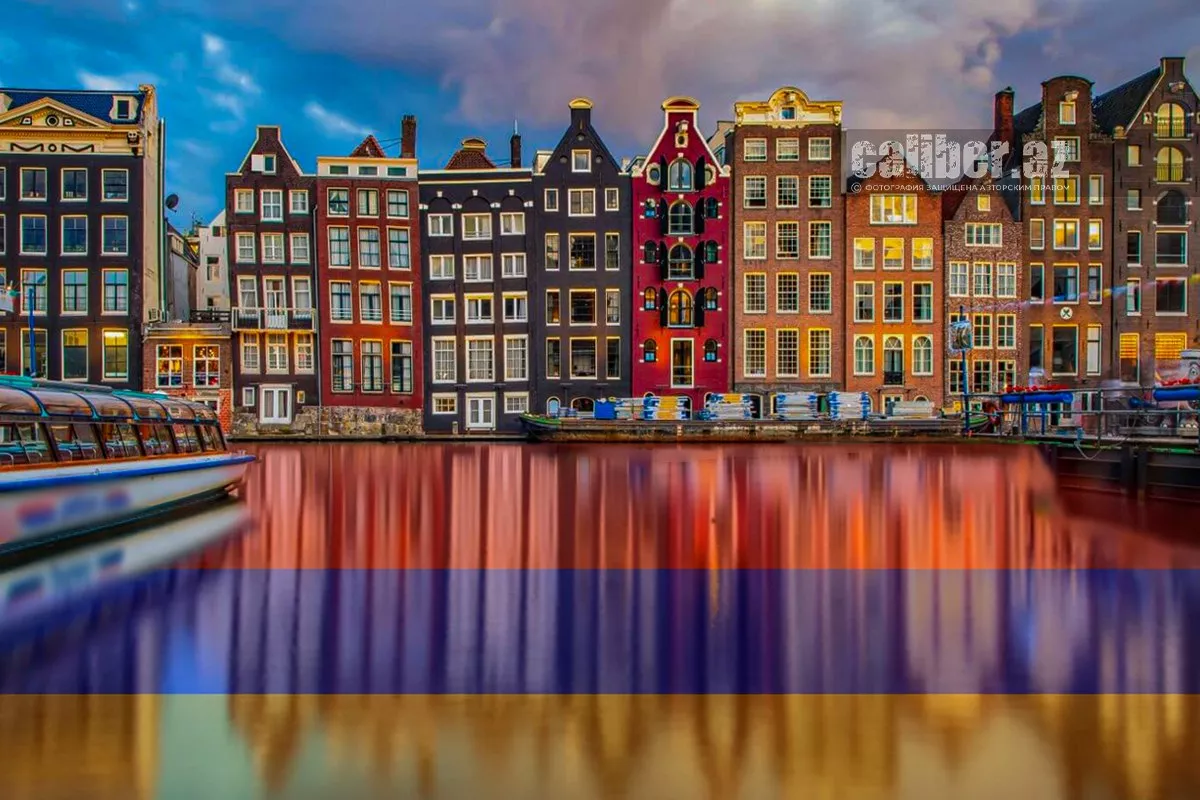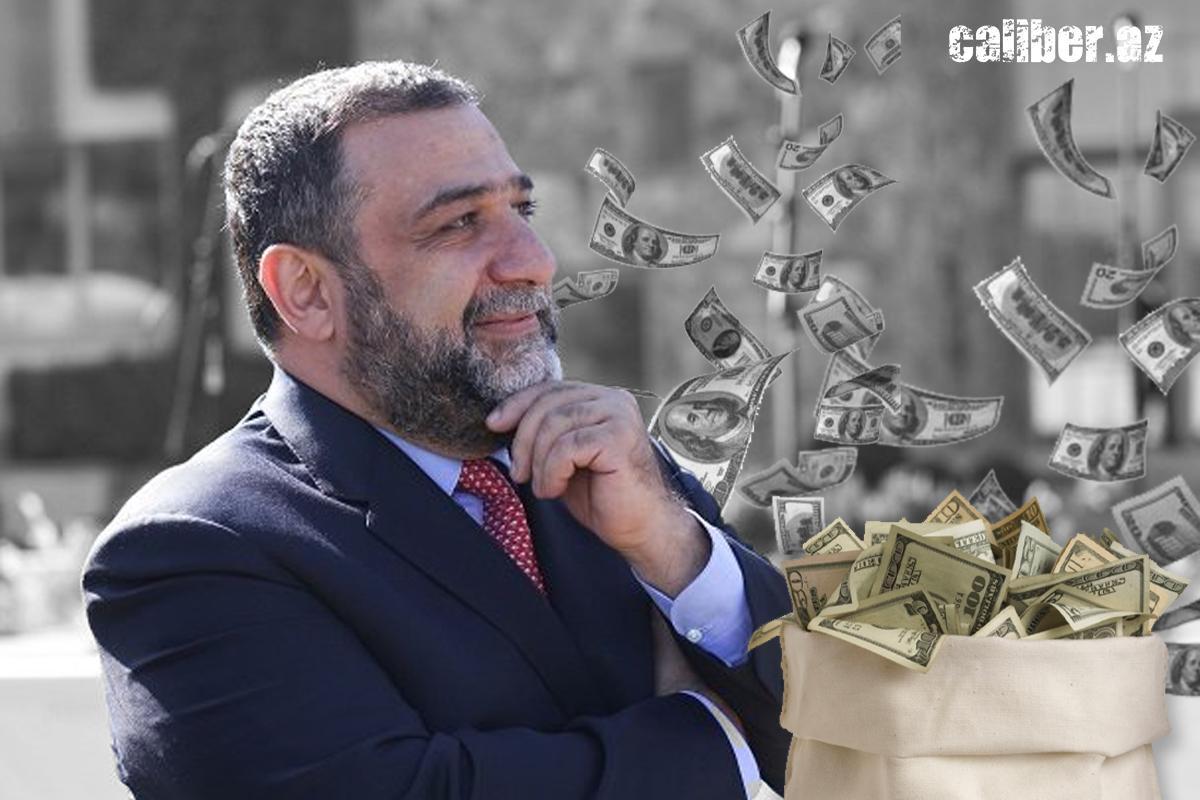Israeli journalist critiques Dutch anti-Azerbaijani resolutions as double standards
Israeli journalist Rachel Avraham has authored an article on her blog for the Foreign Policy Association, in which she articulates her disapproval of the recent anti-Azerbaijani resolutions enacted by the Dutch Parliament. In her piece, Avraham argues that these actions exemplify double standards and bias in the Netherlands' approach to international relations. Caliber.Az reprints the article.
The Dutch Parliament has passed two fresh biased resolutions against Azerbaijan, a strong ally of the United States. These two resolutions were passed after the Dutch Parliament recommended that the government support Armenia in every possible way, particularly in the context of the “seizure of Karabakh,” a resolution that was heavily criticized in Azerbaijan
The first fresh resolution states: “Considering that the Azerbaijani army attacked Nagorno-Karabakh (again! – Ed.) in September 2023, causing almost the entire population to flee to Armenia and not yet return to their homes, and also because Azerbaijan is destroying Armenian cultural heritage in the region… We call on the government to take action to protect Armenian cultural heritage, both under the 1954 Hague Convention and within the framework of UNESCO.”

The second resolution states: “that “obstacles (to the peace process – Ed.) still exist, including Azerbaijan’s continued detention of Armenian prisoners of war.” The resolution calls on the Dutch government, along with other European countries, to intensify pressure on Azerbaijan to expedite the release of all Armenian “prisoners of war.”
Following the parliamentary initiative, a representative of the executive branch—Dutch Foreign Minister Caspar Veldkamp—also expressed support for these resolutions during his speech. He called for the release of individuals associated with the former separatist regime and terrorists arrested by the Azerbaijani side, framing them as “prisoners of war.”
I have visited Karabakh five times and the only significant destruction of cultural heritage that I witnessed was that of Armenians destroying Azerbaijani cultural heritage. I saw the ruins of Aghdam, where 100,000 people used to live in the Soviet period. I saw the ruins of the historic Bread Museum, which used to house a loaf of bread that was preserved by Soviet soldiers dating from the Second World War.
All that remains of that museum is a half-destroyed mural. I saw tombs dating from the Karabakh khanate, a world heritage site which were partially destroyed. I saw a mosque, which until recently housed pigs and goats, and was used as an Armenian watch tower. And I saw the remnants of a cemetery, where all of the bones were thrown away, with the tombstones and gold teeth in the graves being sold for use in the Islamic Republic of Iran.
I was in Shusha and saw a destroyed Azerbaijani palace, a destroyed bank, and destroyed government offices. All of Shusha, the capital of Azerbaijani music and poetry, was essentially ruins, after the Armenians controlled the area for thirty years and literally lived among the ruins, not rebuilding anything. I saw a monument to Soviet soldiers that was destroyed in the city of Sultanya. I saw a ruined mosque in Zangilan, which was recently rebuilt but the ruins were preserved as a memorial to Armenia’s crimes against humanity.
Mile after mile, I saw destroyed agricultural fields, ruined homes and other cultural heritage sites, and many mosques that lay demolished or disrespected in cruel ways. In contrast, I saw that the Azerbaijanis only caused mild damage to a church in Shusha, which they rushed to fix. Yet, the Dutch Parliament is silent on all of this destroyed cultural heritage.
They only care about the few churches that accidently got damaged in the fighting and that Azerbaijan imprisoned some Armenian separatists, like Ruben Vardanyan, a Russian oligarch of Armenian ethnicity close to Putin who committed crimes against Azerbaijanis. Just as the West wants to see Israel release Hamas and Islamic Jihad terrorists in exchange for freeing the hostages, so does some Western countries like the Netherlands wish to see terrorists with Azerbaijani blood on their hands set free.

The Azerbaijani Foreign Ministry stated in its response: “It is regrettable that the aforementioned documents and expressed opinions completely ignore the fact of military occupation that was once perpetrated against our country, the ethnic cleansing of the Azerbaijani population, and the ongoing territorial claims of the Armenian side against Azerbaijan.”
This is major double standard on the part of the Netherlands: “The colonial past of the Netherlands is marked by the enslavement and exploitation of numerous peoples in Asia, Africa, and the Americas, along with numerous crimes committed against them. As they expanded their colonial empire through brutal tactics, the Netherlands consistently prioritized profit over human rights. A significant portion of the Netherlands’ development is built on the plundered national wealth of enslaved countries. Therefore, the statement from the Netherlands—who continue to keep various peoples around the world in a state of dependency—that they are making efforts to overcome the severe consequences of their own colonial history should be viewed as hypocrisy,” stated the Milli Majlis of Azerbaijan.
The Baku Initiative Group (BIG) has announced its invitation to the Parliament of the Netherlands to urge the government to put an end to the crimes occurring on the islands of Bonaire, Sint Maarten, Aruba, Curaçao, Sint Eustatius, and Saba. The group also called for the establishment of an investigative commission to hold accountable those responsible for past and ongoing crimes.
Additionally, the Group urges the European Union to support the creation of a relevant body under the UN Human Rights Council to oversee criminal activities in these territories and facilitate forwarding recorded cases to other UN bodies. “We urge you to support initiatives against colonial crimes at the international level and back the activities of the Baku Initiative Group,” BIG stated.
Rachel Avraham is an Israel-based journalist, the CEO of the Dona Gracia Center for Diplomacy and the editor of the Economic Peace Center.








